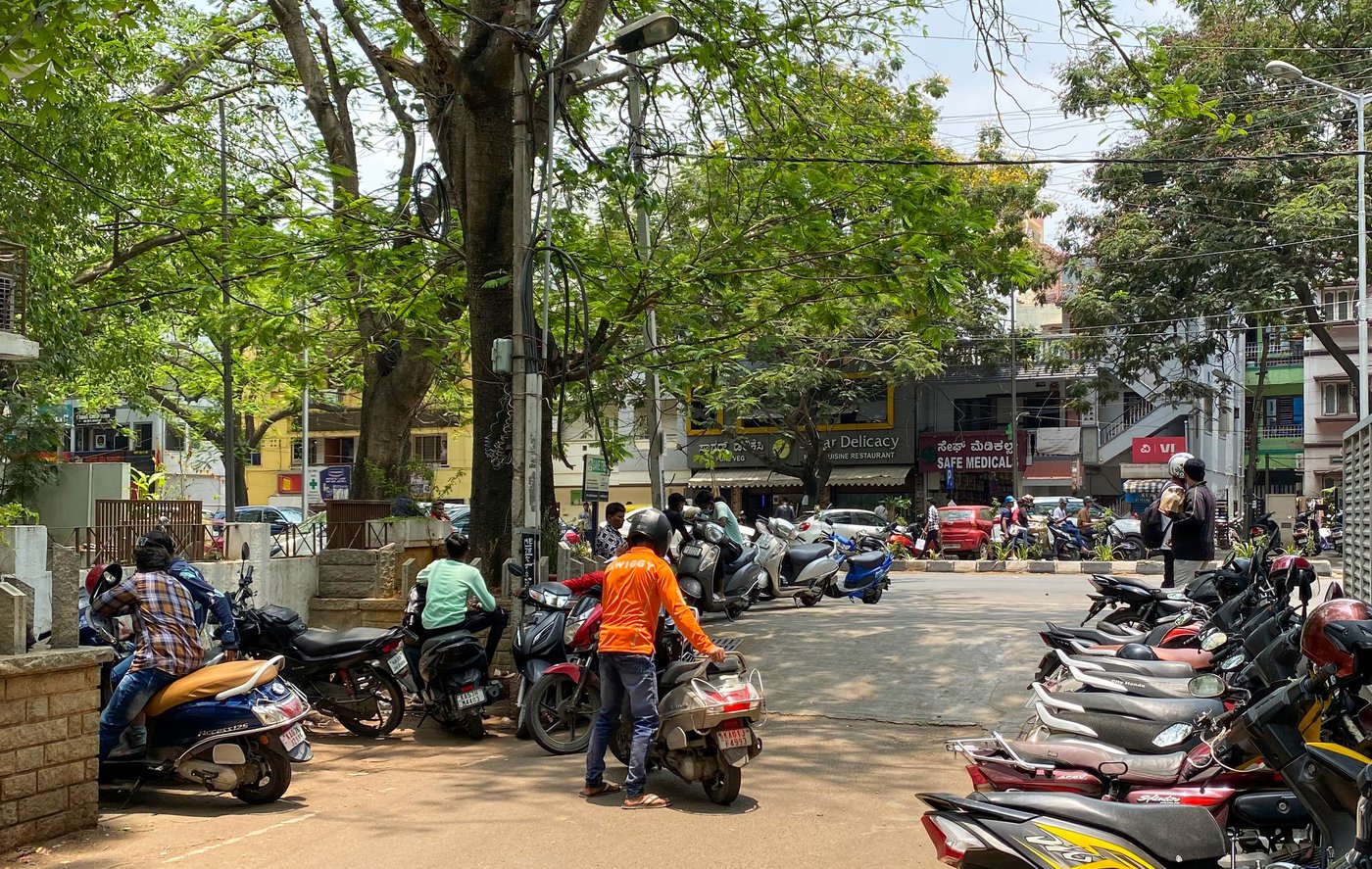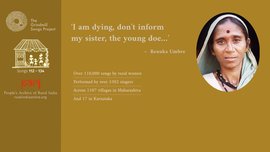“There are no leave options, breaks, or any set working hours.”
Shaik Salauddin, is a driver in an aggregated cab company based out of Hyderabad. The 37-year-old is a graduate but says he has never read the contract he signed with the company he would prefer not to name. “It’s filled with too many legal terms.” The contract is only present on the app he has downloaded; he has no physical copy.
“No contract was signed,” says delivery agent, Ramesh Das (name changed). A migrant to Kolkata, he wasn’t looking for legal guarantees but how quickly he could land a job when he arrived from his village, Baha Runa in Paschim Medinipur district of West Bengal. “There was no paperwork. Our ID [identity] is included in the app – that’s the only identification. We are employed through vendors [outsourced through third parties],” he points out.
Ramesh's commission is around Rs. 12 to 14 per parcel and he can earn roughly Rs. 600 a day if he completes 40 to 45 parcel deliveries, with “No fuel cover, no insurance, no medical benefit, no other allowance,” he adds.
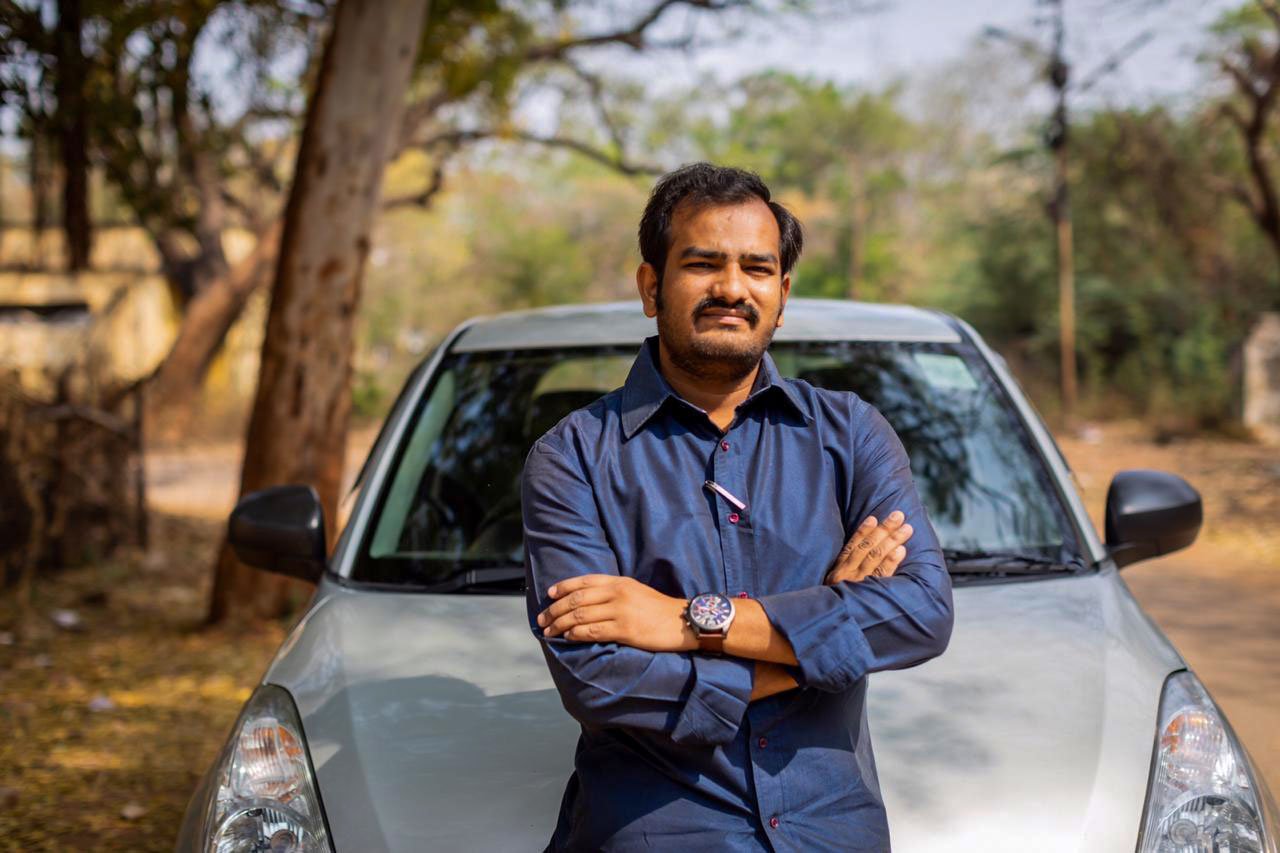
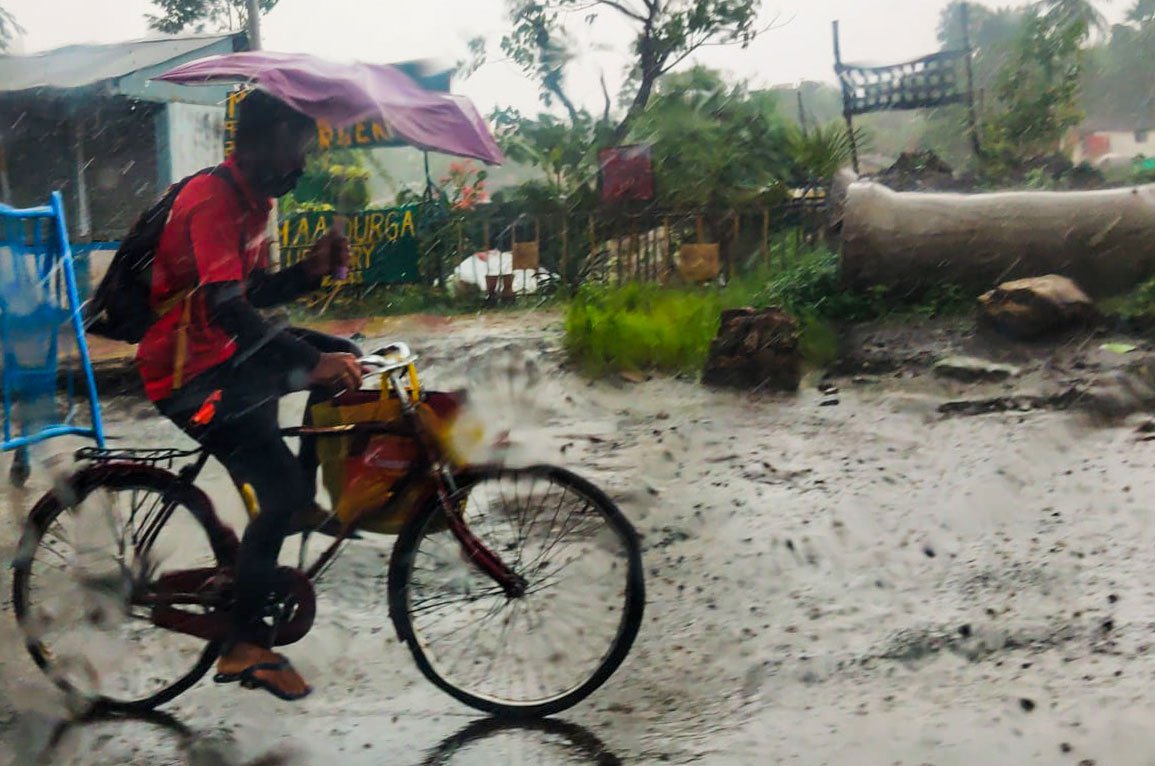
Left: Shaik Salauddin, is a driver in an aggregated cab company based out of Hyderabad. He says he took up driving as it was the easiest skill for him to learn. Right: Monsoon deliveries are the hardest
After he moved from his home in Bilaspur to Raipur three years ago, Sagar Kumar works long hours to earn a sustainable living. The 24-year-old is a security guard at an office building in the capital city of Chhattisgarh from 10 a.m. to 6 p.m., and then drives around delivering Swiggy orders on his bike till midnight.
Outside a famous eatery in Bangalore, a number of delivery agents are milling around, their smartphones clutched in their palms. Sunder Bahadur Bisht is waiting for his phone to beep with the next order. A Class 8 drop out, he struggles with the instructions in a language he is just picking up.
“I read it in English, I just about manage. There isn’t much to read… first floor, flat 1A….” he reads out. And no, he has no contract in hand and no face to put to his ‘office’. “Leave, sick leave, all not available."
Spread across the country, in metros and small towns, Shaik, Ramesh, Sagar and Sunder are India's gig workers – estimated to be 7.7 million, says a Niti Aayog report published in 2022.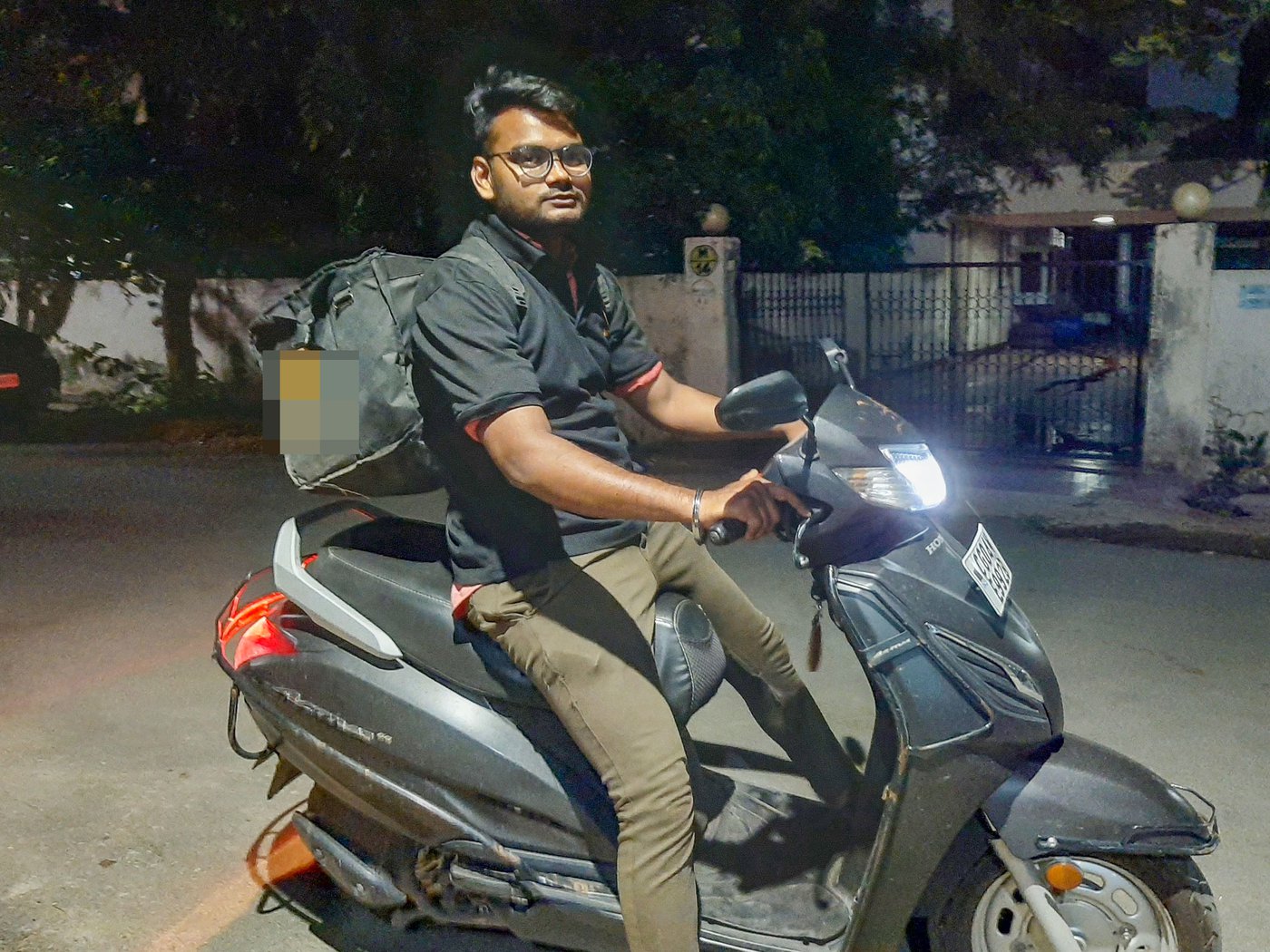
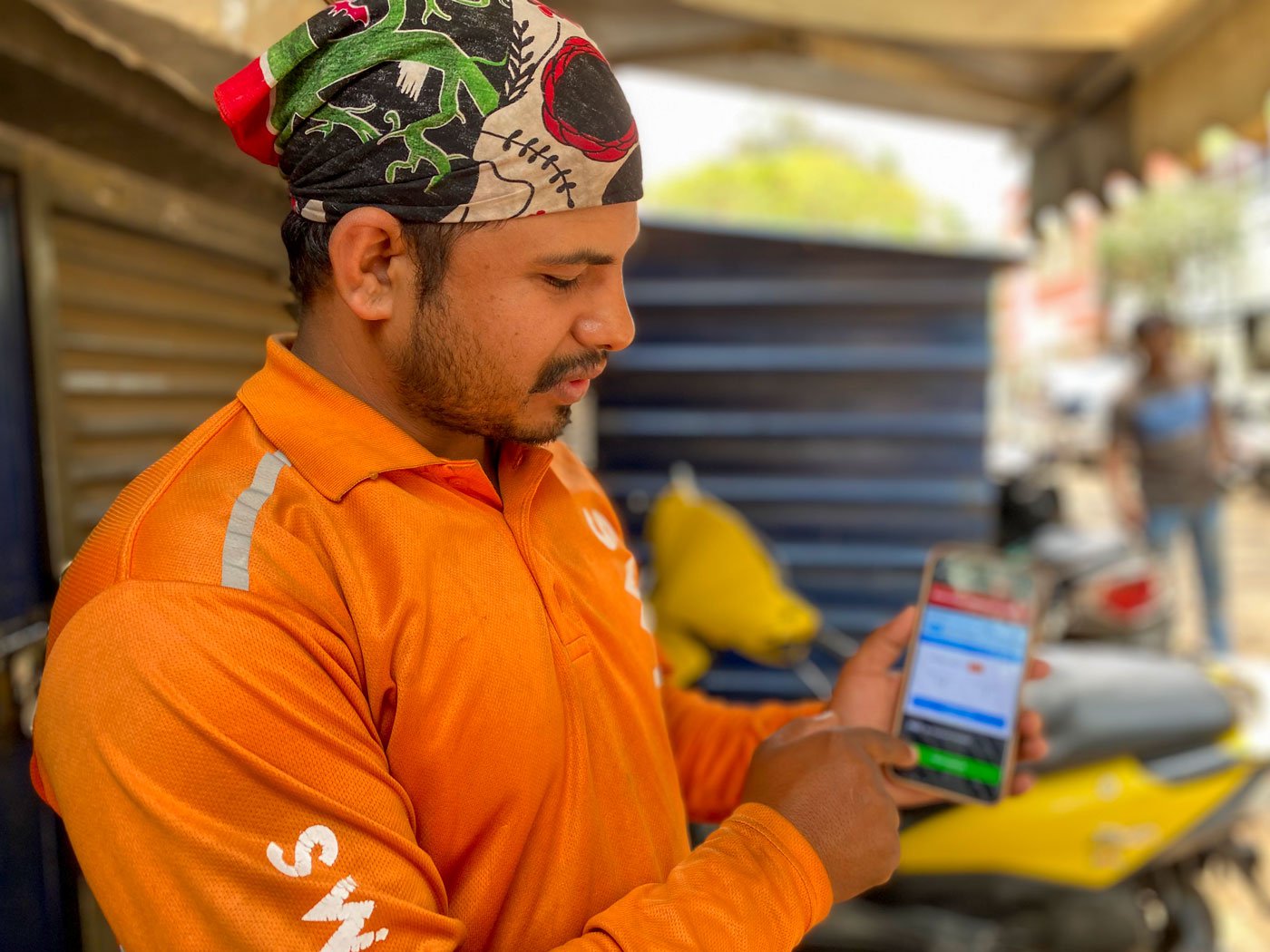
Left: Sagar Kumar moved from his home in Bilaspur to Raipur to earn better. Right: Sunder Bahadur Bisht showing how the app works assigning him his next delivery task in Bangalore
They include workers who drive cabs, deliver food and parcels and even offer beauty makeovers at home. The tribe includes mostly young people whose phones have become their workplace, job details are bot generated and job security is as precarious as that of a daily wage worker. In the last few months, at least two such employers have laid off thousands of workers citing cost cutting.
With the unemployment rate at 18.5 per cent for workers aged 15-29 years, according to the Periodic Labour Force Survey (July-September 2022), there is a desperation to land any job, despite the legal and contractual gaps.
There are many reasons why gig-work scores over other daily wage labour in the city. “I’ve worked as a coolie and in clothes and bags shops. All I need for Swiggy [delivery] is a bike and a phone. I don’t have to lift heavy things or do anything that is too [physically] difficult,” points out Sagar. Delivering food and other items in Raipur after 6 p.m., he manages to earn Rs. 300 to 400 a day, going up to Rs. 500 a day during the festive season. His ID card is valid till 2039 but is missing his blood group and an emergency contact number; he says he has not had the time to update these details.
But unlike the others, Sagar’s day job at a security agency comes with medical insurance and a provident fund, and a monthly income of Rs. 11,000. This stability and the additional income from delivering has allowed him to build his savings. “I wasn’t able to save, send money to my family and pay back debts from corona with just one job. Now I can save at least a little.”
![Sagar says, ‘I had to drop out after Class 10 [in Bilaspur]because of our financial situation. I decided to move to the city [Raipur] and start working’](/media/images/04-20230427_203306-PT.max-1400x1120.jpg)
Sagar says, ‘I had to drop out after Class 10 [in Bilaspur]because of our financial situation. I decided to move to the city [Raipur] and start working’
Back in Bilaspur, Sagar’s father, Sairam runs a vegetable stall in the town and his mother Sunita takes care of his younger brothers – six-year-old Bhavesh and one-year-old Charan. The family belongs to a Dalit community in Chhattisgarh. “I had to drop out after Class 10 because of our financial situation. I decided to move to the city and start working,” he says.
App-based cab driver in Hyderabad, Shaik says he took up driving as it was the easiest skill for him to learn. The father of three young girls says he divides his time between union work and driving, mostly at night as, “There is less traffic and slightly more money.” Shaik earns roughly Rs. 15,000 - 18,000 a month, after expenses.
A migrant to Kolkata, Ramesh was also compelled to join the app-based delivery business as it was the quickest way to start earning. He was in Class 10 when he had to drop out of school to support the family after his father passed away. “I had to start earning to help my mother. I did odd jobs – worked at shops,” he says talking about the last 10 years.
On his rounds delivering parcels in Jadavpur, Kolkata, he says stopping at a traffic signal builds tension in his head, “I’m always in a hurry. I cycle at such speed…there is so much anxiety to do everything on time. Monsoons are the worst time for us. We sacrifice rest, food, health to meet our target,” he says. Carrying parcels in the oversized backpacks results in back injuries. “We all carry heavy shipments. Each and every delivery person suffers from back pain. But we don’t have any health facility [coverage],” he adds.
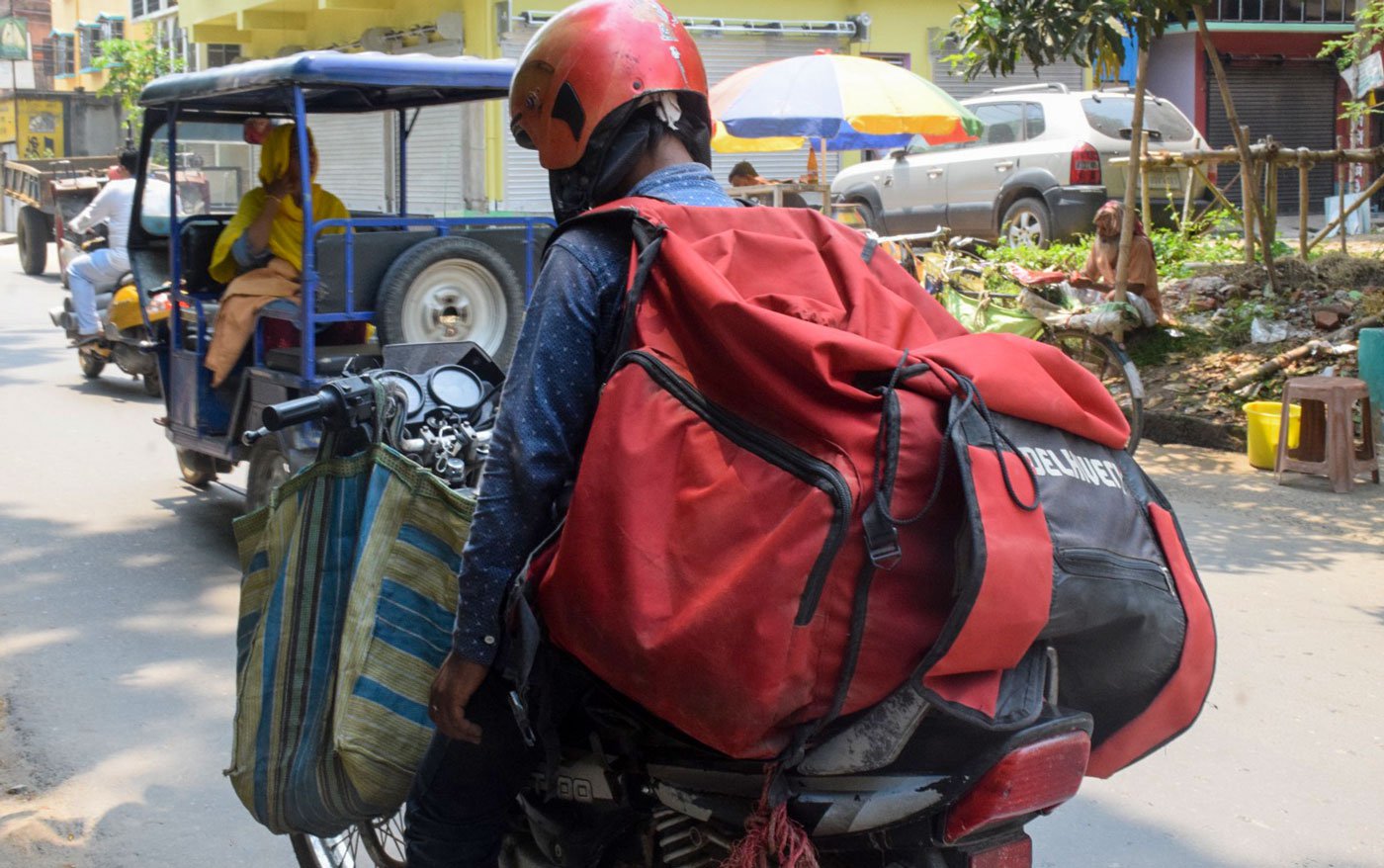
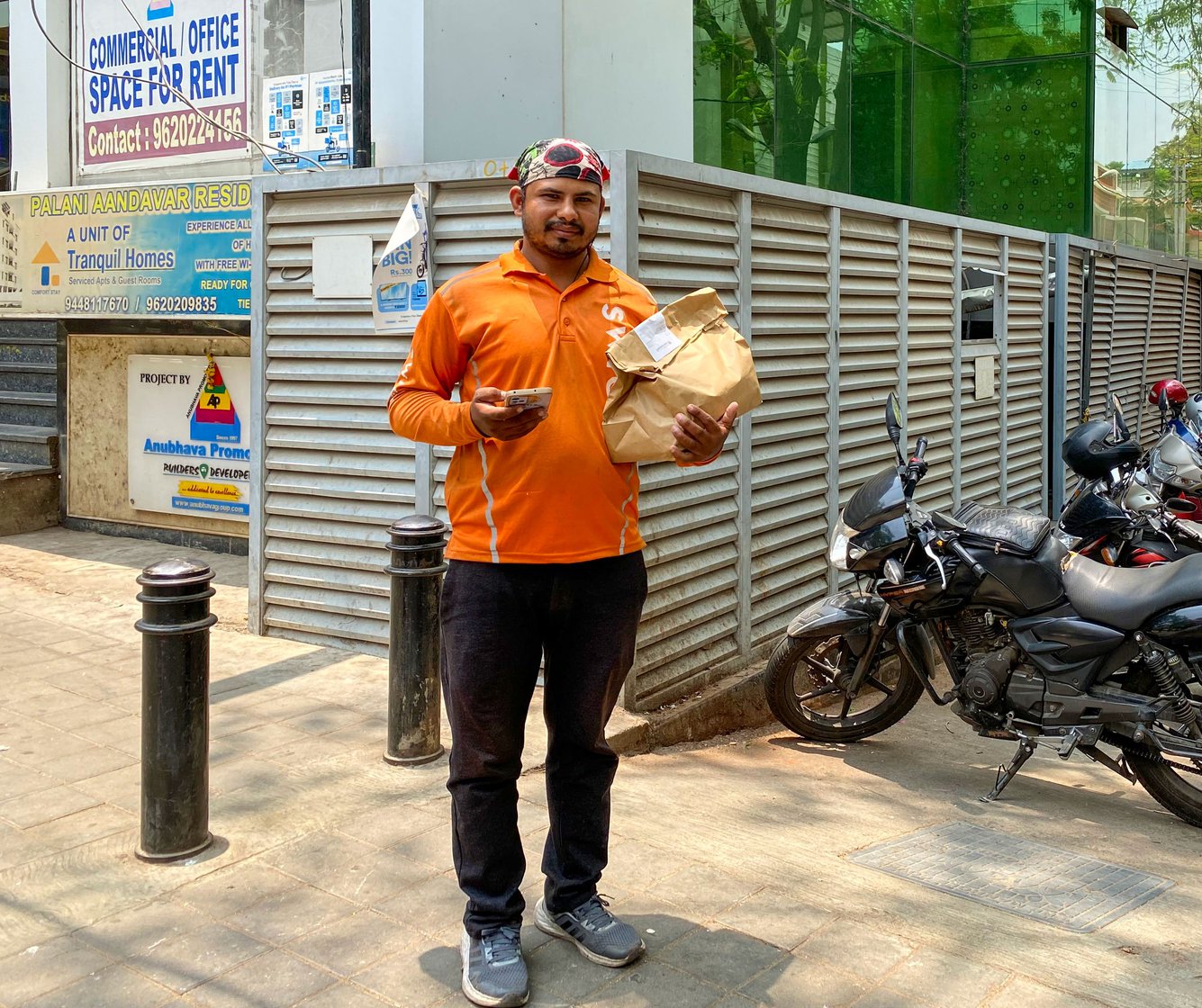
Some delivery agents like Sunder (right) have small parcels to carry, but some others like Ramesh (left) have large backpacks that cause their backs to ache
To get into the workforce, Sundar bought a scooter four months ago to help him get around Bangalore. He says he can earn between Rs. 20,000 to 25,000 a month, out of which his expenses, including the EMI for the scooter, petrol, his rent and household expenses take up around Rs. 16,000.
The youngest of eight siblings, he is the only one in his family of farmers and daily wage workers to venture thousands of kilometres from home in Nepal to find work. “I have a debt to pay off for land I bought, and I plan to do this work till I can pay it off,” he says.
*****
“Madam, do you know how to drive?”
It’s a question that Shabnambanu Shehadali Sheikh is often asked. A 26-year-old female cab driver in Ahmedabad, she has been driving for more than four years and now brushes off the sexist comment.
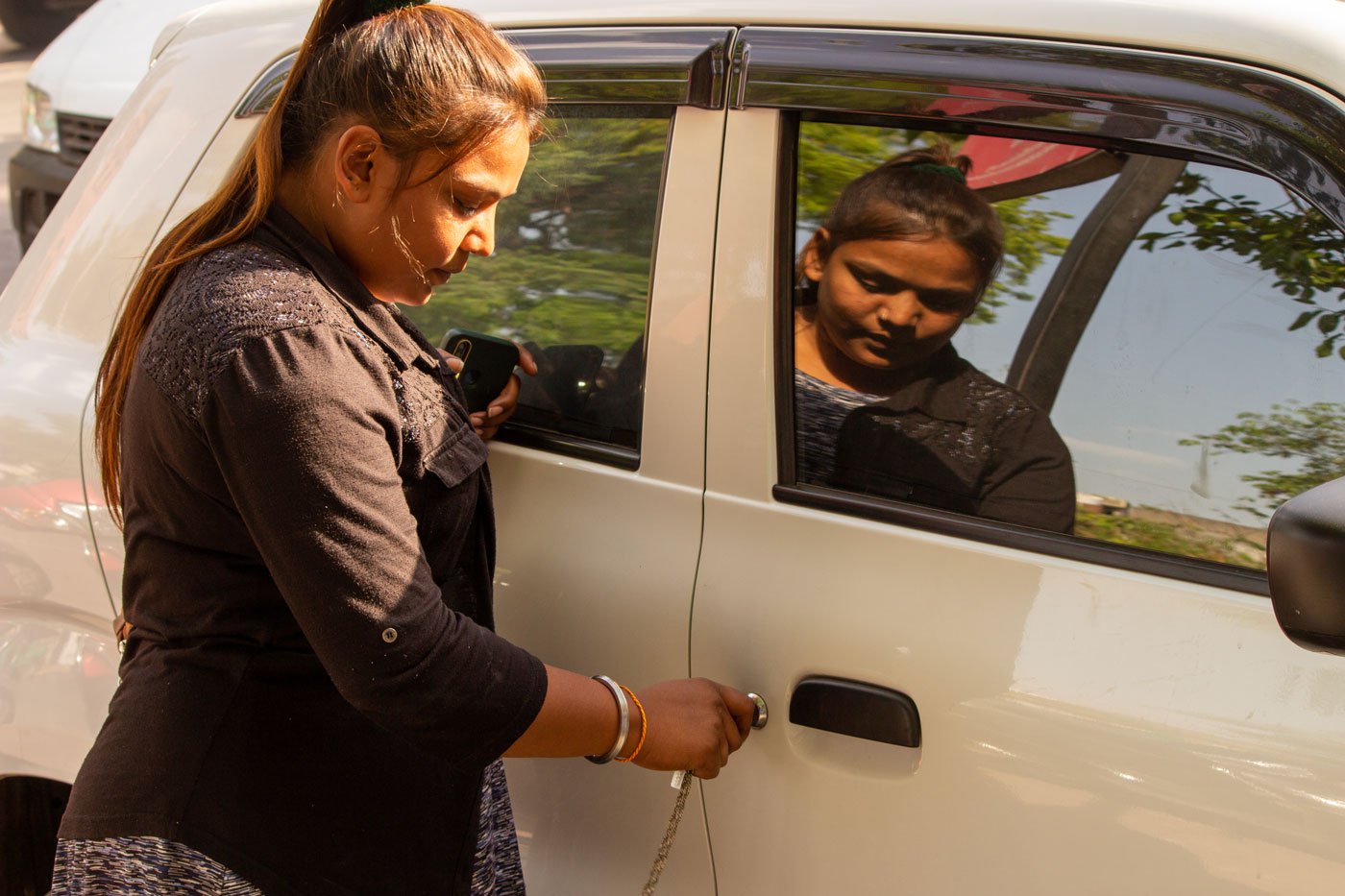
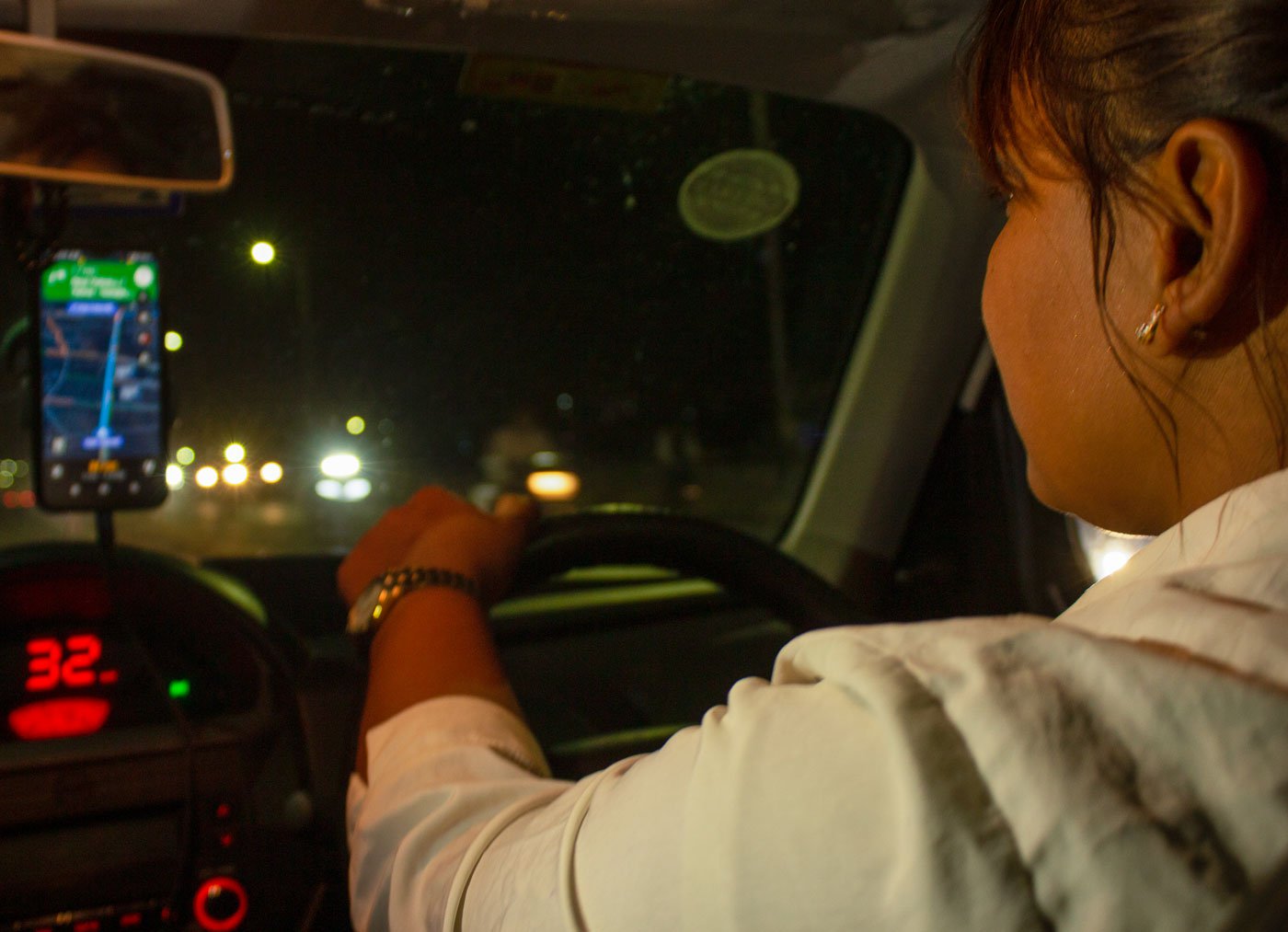
Shabnambanu Shehadali Sheikh works for a app-based cab company in Ahmedabad. A single parent, she is happy her earnings are putting her daughter through school
She took up this work after her husband was tragically killed. “I had never crossed the road on my own,” she says, recalling those days. Shabnambanu trained on a simulator and then on the road, and in 2018, the mother of one rented a car and signed up with an app-based cab service.
“Now I drive on the highway,” she says with a smile.
The unemployment data shows that at 24.7 per cent, females are more likely out of jobs than males. Shabnambanu is among the exceptions and is proud of the fact that she is educating her daughter with her earnings.
While the gender novelty [for her passengers] has worn off, the 26-year-old has more pressing concerns: “On the road, the toilets are far away. Petrol pumps keep them locked. I feel embarrassed to ask for a key because there are only men there.” A study titled Women Workers in the Gig Economy in India points out that besides lack of access to toilets, women workers face a gender pay gap and low safety and security at work.
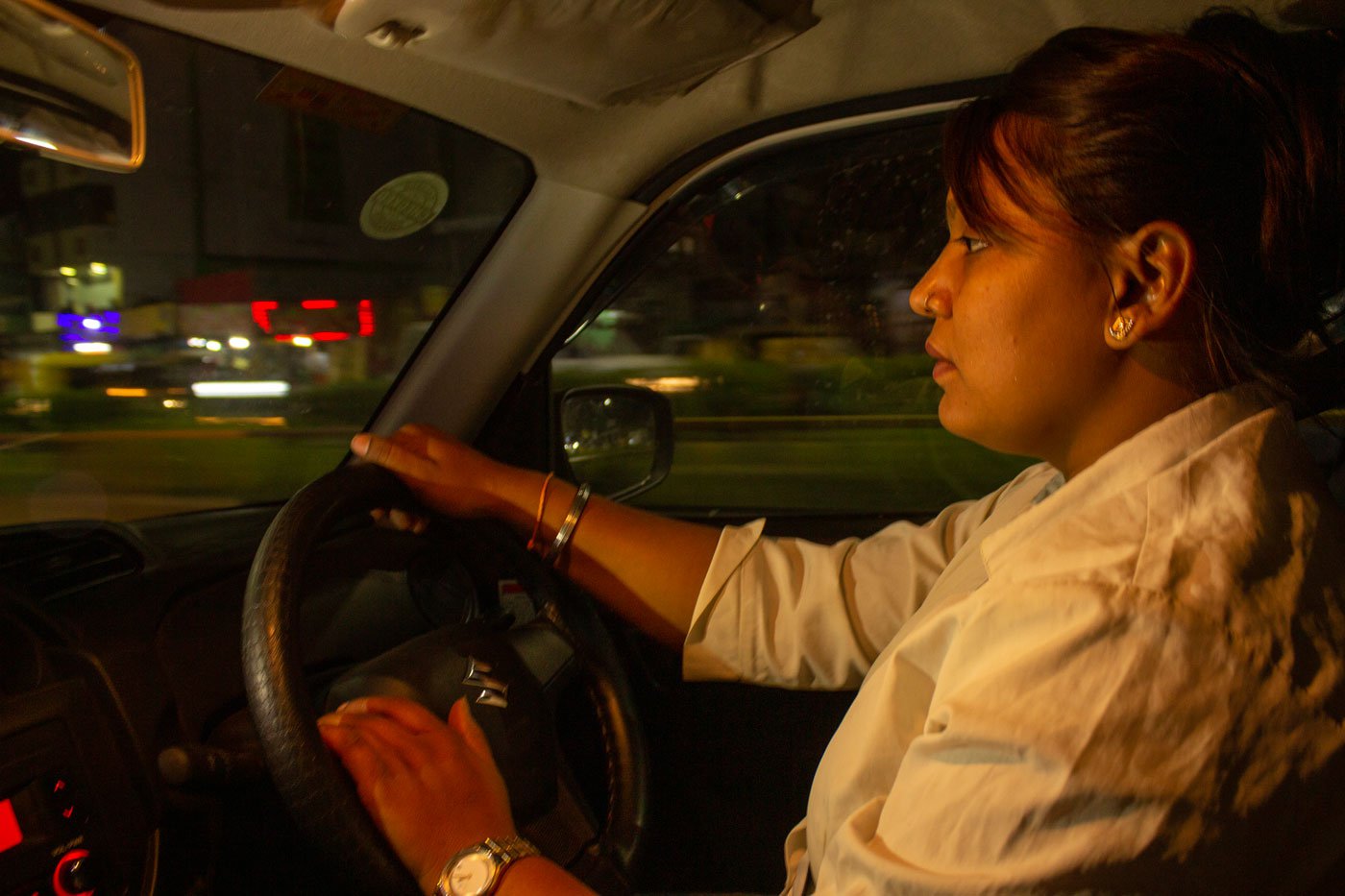
On the road, the toilets are far away, so if she needs to find a toilet, Shabnambanu simply Googles the nearest restrooms and drives the extra two or three kilometres to reach them
When the pressure is too much, Shabnambanu simply Googles the nearest restrooms and drives the extra two or three kilometres to reach them. “There is no way out except to drink less water. But when I do that, I feel giddy in this heat. I get blackouts. I park my car on the side for a while and wait,” she adds.
It’s a concern that Ramesh faces while rushing from one location to another in Kolkata. “In the desperation of fulfilling the daily target, these [toilet breaks] become a non-priority,” he says worriedly.
“Say a driver needs to use the loo and he gets a ride request at the same time, he has to think many times before declining it,” says Shaik who is founder and president of the Telangana Gig and Platform Workers Union (TGPWU). Declining an order / ride downgrades you in the app, and you get penalised, dropped or sidelined. And you can only raise a ticket to a faceless entity and hope for the best.
The Niti Aayog has pointed out in a report titled, India's Roadmap for SDG 8 that, “almost 92 per cent of India’s workforce is employed in the informal sector…do not get the desired social security…” The United Nations Sustainable Development Goals- 8 focuses on, among other issues, “protecting labour rights and promoting a safe and secure working environment.”
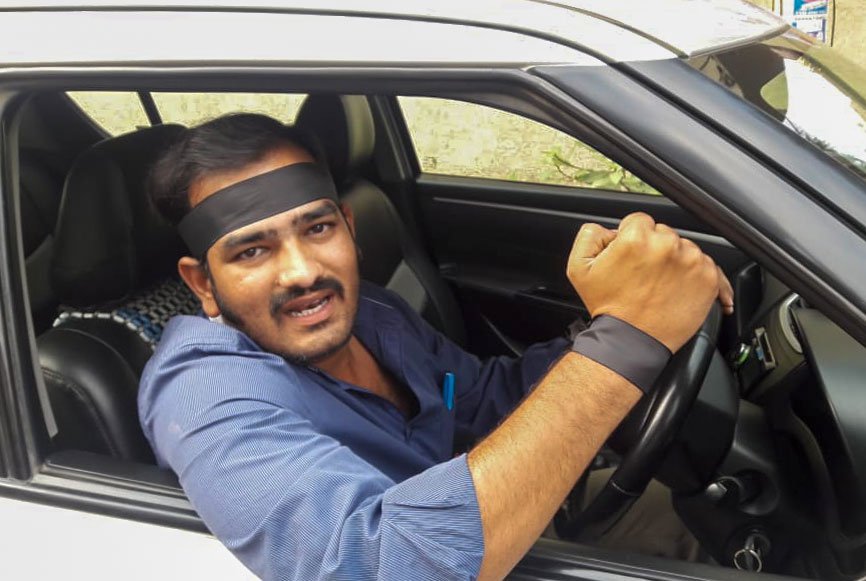
Shaik Salauddin is founder and president of the Telangana Gig and Platform Workers Union (TGPWU)
Parliament passed the Code on Social Security in 2020 , and called for the central government to frame social security schemes for gig and platform workers – expected to triple to 23.5 million by 2029-30.
*****
Many of the workers spoken to for this story expressed a sense of freedom from " maalik [master]." In the first minute of speaking to PARI, Sundar tells us that is why he prefers this job to the regular cloth salesman’s job he was doing earlier in Bangalore. “I am my own master. I can work on my time and if I want to leave at this moment, I can.” But he is also clear that once the loan is paid off, he will look for something more stable and less busy.
Shambhunath is from Tripura and he doesn’t have much time to talk – he is waiting outside a very busy and popular food joint in Pune and a line of Zomato and Swiggy agents are on their bikes, waiting to pick up food parcels. He has been in Pune for the last four years and speaks fluent Marathi.
Like Sundar, he too prefers this job to the one at a mall that brought in Rs. 17,000. “This work is good. We have rented a flat and we [his friends] stay together. I earn around a thousand rupees in a day,” says Shambhunath.
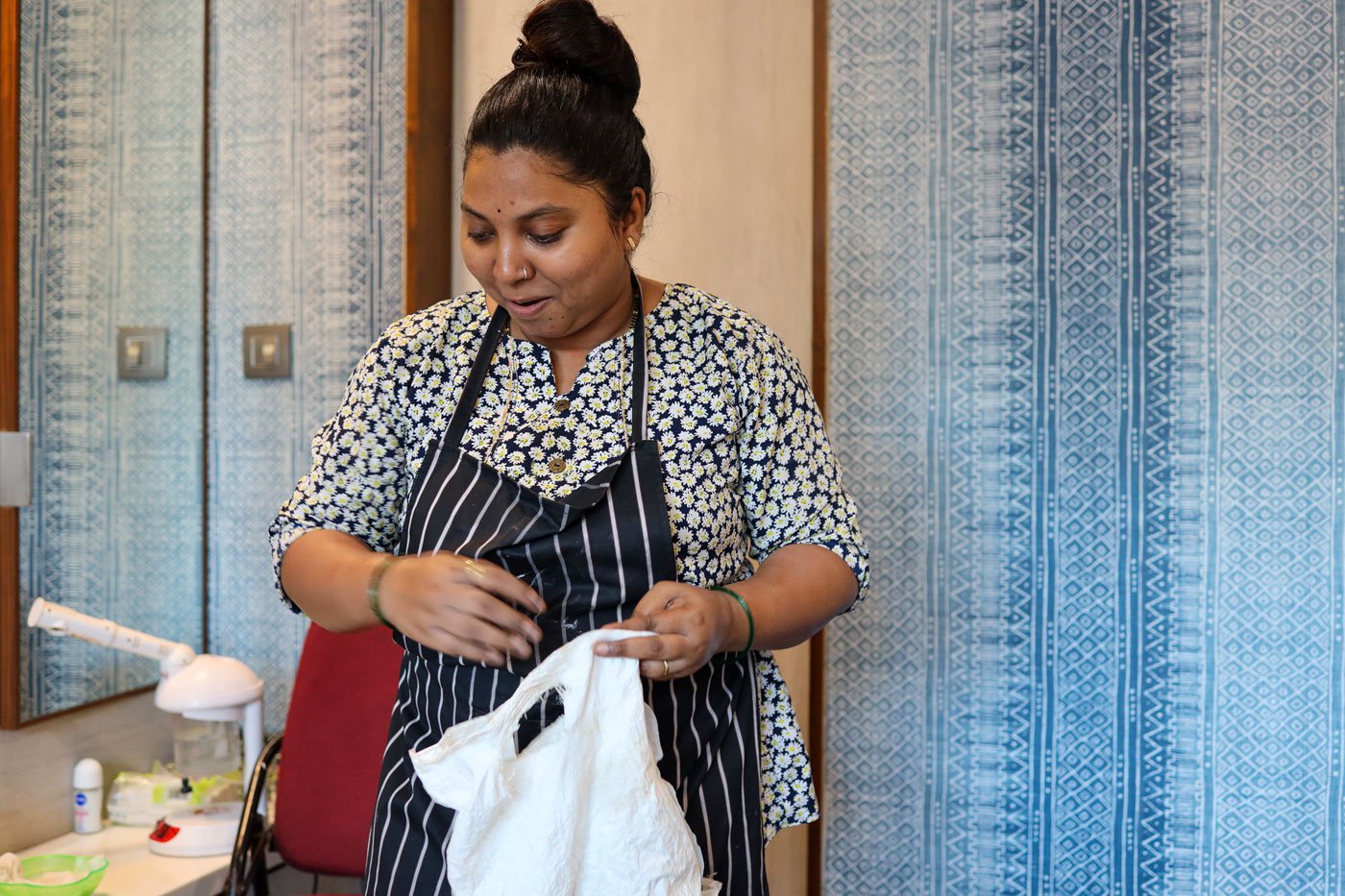
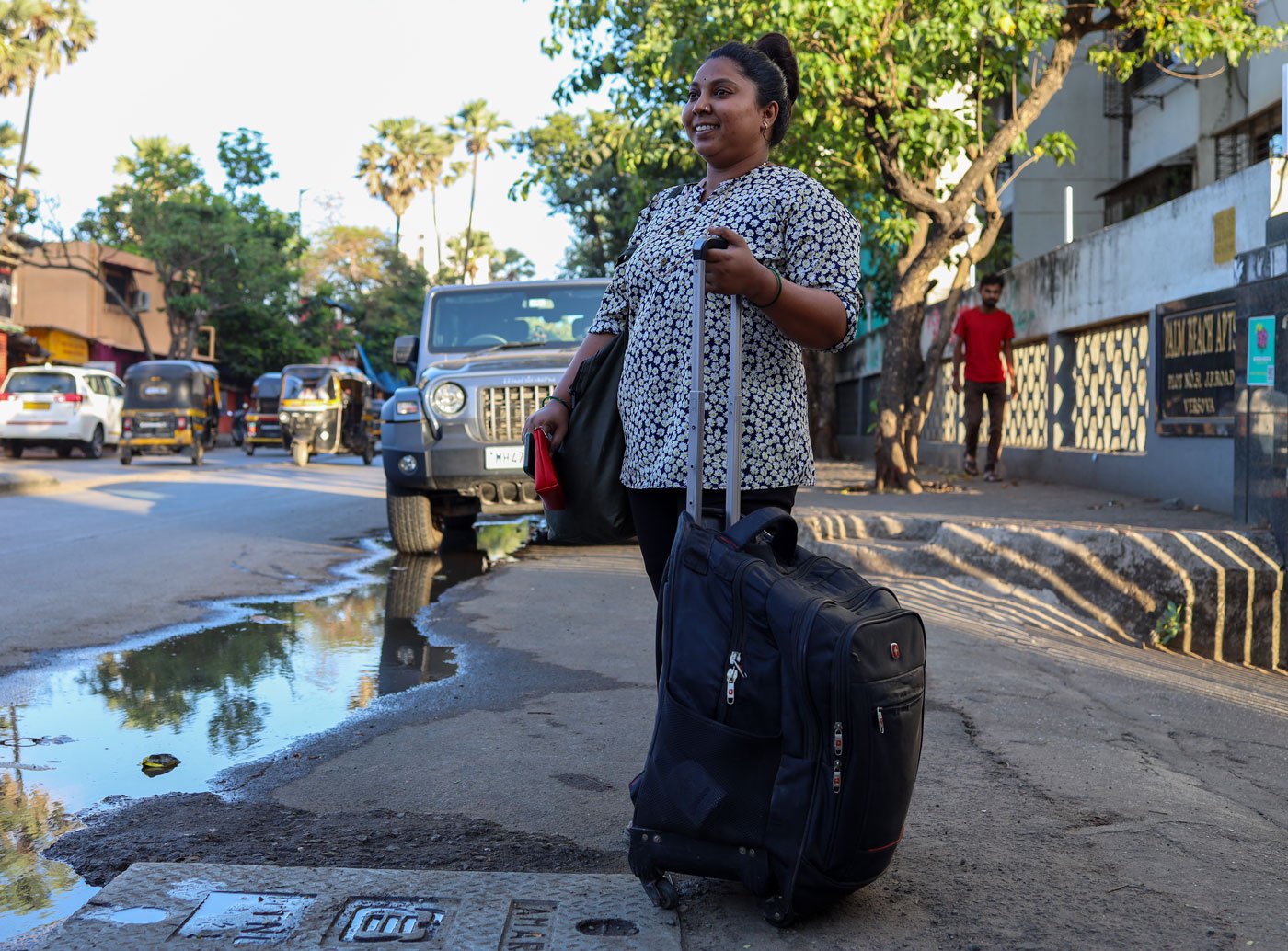
Rupali Koli has turned down an app-based company as she feels an unfair percentage of her earnings are taken away. She supports her parents, husband and in-laws through her work as a beautician
It was the lockdown period of covid-19 that made Rupali Koli turn to freelancing her skills as a beautician. “The parlour I was working at cut our salaries by half, so I decided to freelance.” She did consider joining an app-based job but decided against it, “If I do the hard work, bring the [beauty] product and pay for travel, why should I give someone 40 per cent? I don’t want to give my 100 per cent and get only 60 in return.”
The 32-year-old is from a fishing family in Andheri taluka on Madh island in Mumbai. She supports her parents, husband and in-laws through her work as an independent beautician and, “This is how I’ve paid for my own house and wedding,” she says. Her family belongs to the Koli community, listed as a Special Backward Class (SBC) in Maharashtra.
Rupali lugs around a trolley bag weighing roughly eight kilograms and a three kilo backpack across the city. In between appointments, she makes time to do her household work, cook three meals for her family and says decisively, “ Apna mann ka malik hone ka [One should be one’s own master].”
This story has been reported by
Amrutha Kosuru
from Hyderabad;
Purusottam Thakur
from Raipur;
Umesh Solanki
from Ahmedabad;
Smita Khator
from Kolkata;
Priti David
from Bengaluru;
Medha Kale
from Pune;
Riya Behl
from Mumbai; with editorial support from
Medha Kale
,
Pratishtha Pandya
,
Joshua Bodhinetra
,
Sanviti Iyer
,
Riya Behl
and
Priti David
.
Cover photo: Priti David
